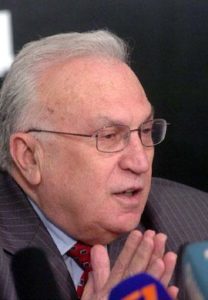By Edmond Y. Azadian
Turkey’s President Recep Tayyip Erdogan had triggered a political tempest in his country and the region earlier this fall, which many believed would spin out of control and create an all-out civil war. But the November 1 election results indicate that he has assured his march towards a “constitutional dictatorship,” as was characterized by the Kurdish leader of the People’s Democratic Party (HDP), Selahattin Demirtas.
The June parliamentary elections were inconclusive for Erdogan’s Justice and Development (AK) Party to form a single-party government and to carry out the constitutional reforms, paving the way for a presidential system that would concentrate power in the hands of Erdogan and expand his power throughout the region. Thus, he decided to schedule a snap election on November 1.
Unlike the United States, there are no checks and balances on the executive branch through the legislative and the judiciary branches in Turkey.
By the estimation of many analysts, Erdogan is poised to become the strongest ruler in Turkey since Ataturk.
In the aftermath of the reelection, markets have rebounded in the country and the Turkish Lira has enhanced its value, indicating that the stability of the country is around the corner.










